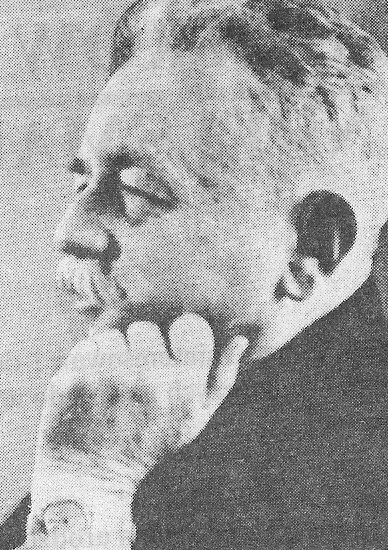140 years ago, Marceli Handelsman (1882-1945) was born in Warsaw to an assimilated Jewish family committed to Polishness.
Initially, he chose the profession of lawyer. However, he abandoned his lawyer’s apprenticeship and went to Berlin to study history. Then he became involved with the socialist movement.
In 1906 he moved to Paris and then to Zurich, where he was awarded a doctorate in philosophy. After travelling around Europe, he returned to Warsaw in 1912, where he continued his social work, lecturing at the Society for Scientific Courses, heading the Cabinet of Historical Sciences and the Library of the Warsaw Scientific Society. In 1915, Handelsman joined the University of Warsaw and became head of the Department of Modern History. After Poland regained independence, he became director of the Archiwum Akt Dawnych (Archive of Historical Records), and at the same time took part in the Polish-Bolshevik war. He was co-founder, vice-president of the Institute for Nationality Studies and chairman of the Historical Atlas Commission. As a co-organiser of the 7th International Congress of Historical Sciences in 1933, he invited a Jewish delegation to participate in the event.
Handelsman became known as an expert on the development of Polish law in the Middle Ages, modern history, especially the activities of Polish emigration in France and Polish-French relations. He cooperated with diplomats, e.g. with Foreign Minister August Zaleski. Handelsman used a broad comparative analysis, and his History (1921) is a basic methodological textbook for history researchers. He left dozens of works on law, the Polish political system and international relations, and a number of disciples, eminent historians (including the Warsaw Ghetto chronicler Emanuel Ringelblum, Artur Eisenbach, Ludwik Widerszal, Aleksander Gieysztor, Tadeusz Manteuffel).
During the Second World War, Handelsman was hiding, gave lectures, wrote academic treatises and political analyses for the Home Army Information and Propaganda Office. In July 1944, he was arrested by the Germans and jailed, then sent to the Gross-Rossen concentration camp. He was transported to Dora-Nordhausen, where he died just before the liberation of that camp.





